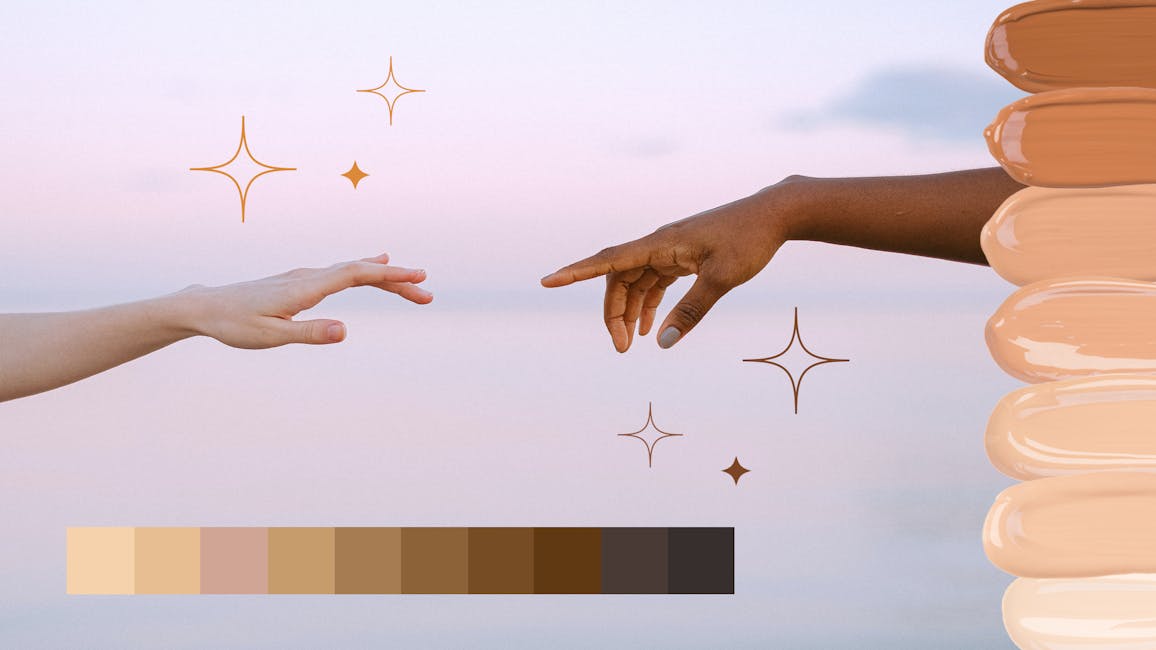Colorism in the Beauty Industry

While it is important to celebrate and acknowledge the progress made in terms of inclusivity in America, it is crucial to note that people of color still struggle.
America has progressed tremendously over recent years in terms of racial inequality, but colorism remains to be seen on a global scale. While it is important to celebrate and acknowledge the progress made in terms of inclusivity in America, it is crucial to note that people of color still struggle. Specifically, the beauty industry continues to marginalize people with darker skin tones, preferentially catering towards a lighter demographic.
Growing up, I religiously applied skin-lightening products to have fairer, whiter skin, thinking that I would achieve a standard of beauty that would bring me acceptance. Why? COLORISM. On the site DeepDyve, Margaret Hunter defines colorism as the process of discrimination that privileges light-skinned people of color over their darker-skinned counterparts.
The beauty industry continues to grow at an increasingly fast pace, with estimates ranking it at about$532 billion in 2019. Of this $532 billion, the global skin lighteners market is estimated to grow to about $31.2 billion by 2024. And these skin lighteners have been in the market for a long time, physically and emotionally damaging consumers all around the world – especially in the Asia Pacific region.
The idea that black is ‘unclean’ fuels the skin whitening industry. Throughout history, society has associated prestige, status, success, beauty, happiness, and anything ‘positive’ with light skin—deeming White civilization superior to other races. Anyone with dark skin would be deemed incompetent, unsuccessful, low-status, or ugly according to society’s standards. The Black Power movement has tried to replace this mode of thinking with messages such as, ‘Black is Beautiful,’ but that message hasn’t undone that centuries of harm that colorism has done to billions of people across the globe. These negative associations have proven to be detrimental mentally and emotionally, yet colorism continues to run rampant in the beauty industry due to this mode of thinking.
In addition to skin whiteners, colorism is present in the lack of proper shade ranges that accurately reflect the true variety of skin tones. It’s important to be aware of a brand’s failure to be racially inclusive as this enforces racist ideals of beauty and keeps us from moving forward into a society that could, and should celebrate diversity. However, many brands have missed the mark and have excluded deeper cosmetic shades in their lines. Excluding an entire group of people by creating cosmetic lines with limited shade ranges sends the message that those with darker skin tones don’t fit into society’s ideal standard of beauty. It’s as if brands include fifty shades of “medium beige” and add on a couple of deep shades at the end as some sort of consolation prize. It’s clear to see that many feel forgotten, excluded, and made to feel ‘less than’ in the makeup world.
Makeup and skincare may seem like a trivial topic of discussion for civil rights advancement, but it’s important to talk about as the beauty industry is a billion-dollar industry that influences the way our society perceives human beauty, privilege, and worth. The beauty industry has progressed in terms of racial inequality with inclusive makeup lines and media advertisements celebrating dark-skinned beauty with brands such as Fenty Beauty and Makeup For Ever pioneering the industry, but colorism still remains deeply ingrained in society.
Interested in learning more about inclusive beauty brands? Check out how brands have progress over the years in The Rise of Inclusvity in The Beauty Industry.